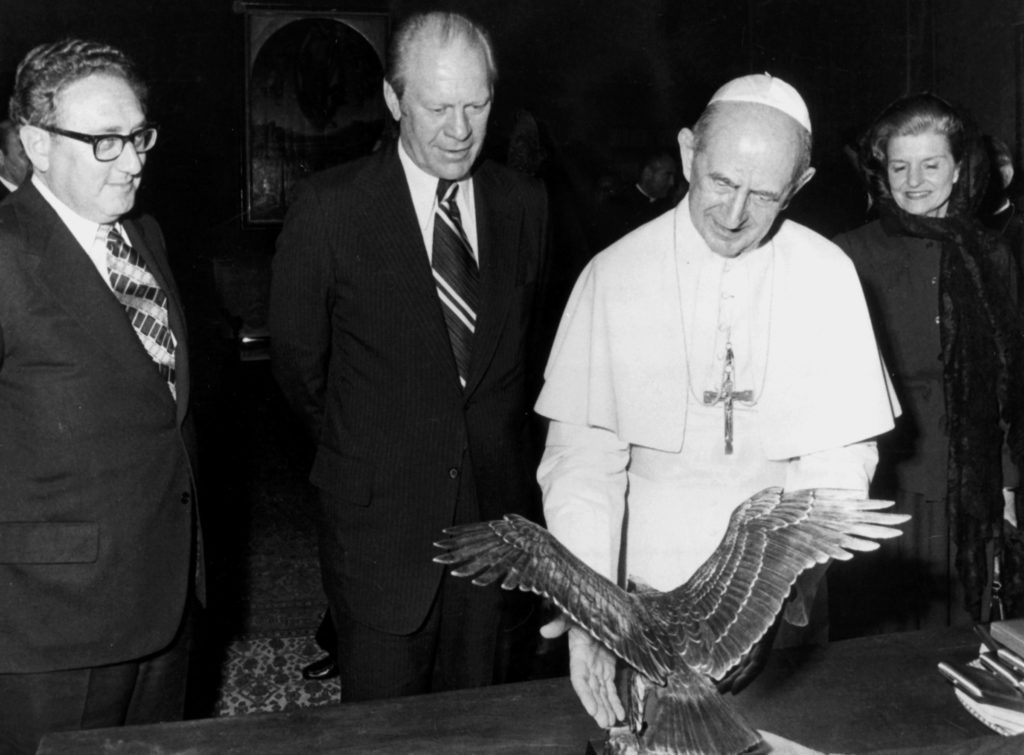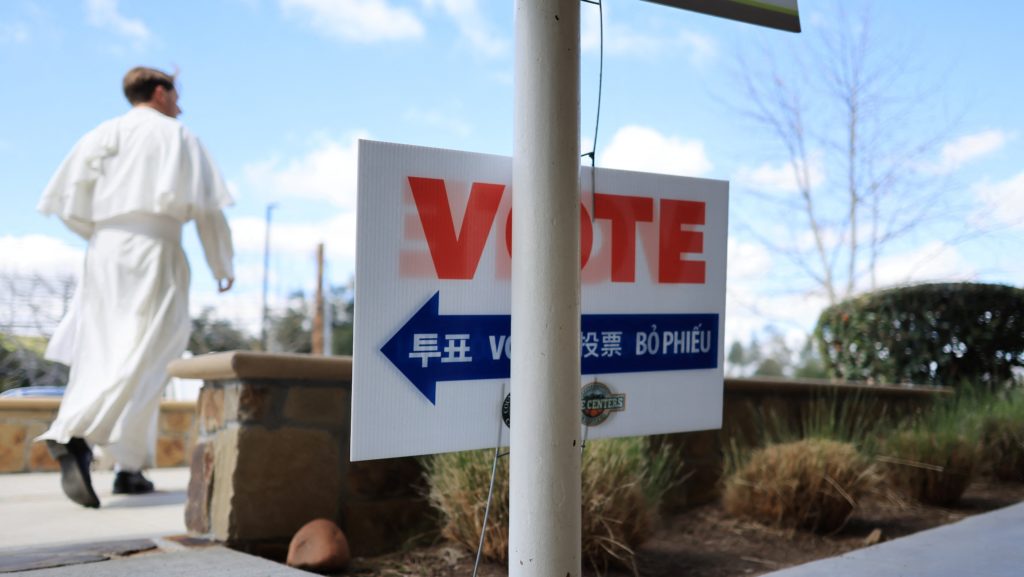If we are to draw a lesson from Kamala Harris’ decision to skip this year’s Al Smith Dinner and instead concentrate on campaigning, it’s that trading in an iconic Catholic event for something you consider more politically rewarding isn’t a smart way to court Catholic voters.
Commenting on Harris’ late “no thanks,” Cardinal Timothy Dolan of New York said, “We were looking forward to giving the vice president an enthusiastic welcome. This hasn’t happened in 40 years, since Walter Mondale turned down the invitation. And remember, he lost 49 out of 50 states.”
“I don’t want to say there’s a direct connection,” the cardinal added.
The Al Smith Dinner is a celebrity-studded annual event that raises money for Catholic charities. The tone is deliberately light. Politicians frequently are guests, and although Harris has bowed out, this year’s Oct. 17 dinner still included former President Donald Trump.
No one intended it, but the Harris incident serves to illustrate the relevance of two questions about the political situation of American Catholics.
The first question is whether Catholics have become a voting bloc without a clear link to either political party.
The second question is whether it still makes sense in discussing voting patterns to speak of American Catholics as a “bloc” — a term suggesting a homogeneous body.
But the reality seems instead to be that particular groups within the broadly “Catholic” population identify — in some cases, very strongly — with one or the other of the two big parties and vote more or less consistently as either Republican or Democrat.
As a thumbnail sketch of history illustrates, this is a big change from the not-so-distant past.
Until the middle years of the last century, American Catholics were overwhelmingly Democrats, and even assemblies of the Catholic bishops’ national organization, the National Catholic Welfare Conference, were sometimes humorously described as “the Democratic Party at prayer.”
The bishops were generally laid back politically in those years, but behind the scenes they cultivated their relationship with the White House and had close ties with congressional friends like Rep. John McCormack of Massachusetts, Speaker of the House of Representatives from 1962 until he retired in 1971.

Meanwhile, though, a shift in the political situation of Catholics had been taking place. Post-World War II social and economic factors like the GI Bill-fueled increase in the number of Catholics attending college and a population shift to the fast-growing suburbs had a lot to do with it, but the political catalyst was the presidency of Dwight D. Eisenhower. Americans in large numbers were responsive to the slogan “I like Ike,” and Catholics liked Ike as much as anybody else, helping to elect the World War II hero to the presidency in 1952 and reelecting him in 1956.
Four years later, however, the candidacy of John F. Kennedy, the first Catholic to run for president since Al Smith in 1928, won back many of those Catholic voters to the Democratic Party, and after Kennedy many of them remained Democrats. But as time passed, the Catholic vote in presidential elections more and more tended to swing back and forth between Republicans and Democrats.
A turning point for the Catholic bishops came in 1976, an election year, when a high-level group from the bishops’ national organization met successively with Democratic candidate Jimmy Carter and Republican President Gerald Ford. The bishops came away saying they were “disappointed” by Carter’s refusal to support a pro-life amendment to the Constitution and “encouraged” by Ford’s backing. A firestorm of criticism then engulfed the bishops for supposedly intervening in politics.
Since then, the hierarchy has generally steered clear of direct political interventions. Instead, the U.S. Conference of Catholic Bishops’ conference publishes a quadrennial summary of its views on a range of current issues. As if to underline its hands-off approach, “Forming Consciences for Faithful Citizenship” comes out a year before a presidential election and seems to only receive limited attention. The bishops have said they mean to try some other approach after the 2024 vote.
For Catholics generally, the last several presidential elections reflect a change in Catholic voting habits in sharp contrast with earlier days.
- 2008: Fifty-six percent of white Catholic voters supported GOP presidential candidate Sen. John McCain of Arizona who lost to Democrat Sen. Barack Obama.
- 2012: Obama was reelected, while 56% of the white Catholic vote went to the GOP’s Sen. Mitt Romney of Utah.
- 2016: Republican Donald Trump got 60% of the white Catholic vote while defeating Democrat Hillary Clinton.
- 2020: Democrat Sen. Joe Biden defeated Trump, who received 63% of the votes of Catholics who attend Mass monthly or more often, and 53% of the votes of Catholics who attend less frequently.
We shall find out shortly where Catholic voters stand in 2024.
For many Catholics (and others), the big (though hardly only) political question is where opposing abortion and pressing pro-life issues will find a home. The Democratic Party is now solidly pro-abortion. President Joe Biden, a Catholic, toed the party’s pro-choice line during his years in the White House, while Kamala Harris and Tim Walz, her running mate, are aggressive supporters of legal abortion. There is no realistic chance that the Democratic party will back off from its support for abortion in the foreseeable future.
The Republican Party, meanwhile, has done some backing off of its own — away from a strongly pro-life stance, that is. The subject vanished from the GOP platform this year, and Trump has made it clear he thinks he did enough for pro-lifers by naming three new Supreme Court justices who helped overturn a nearly 50-year-old decision that invented a constitutional right to abortion.
Having named those new justices, Trump says he now means to concentrate on regaining the presidency without having to make any new promises to pro-lifers. That leaves them with the assurance, such as it is, that, if elected, Trump and his running mate J.D. Vance won’t actively promote abortion, while if it’s Harris and Walz you can bet they will.

